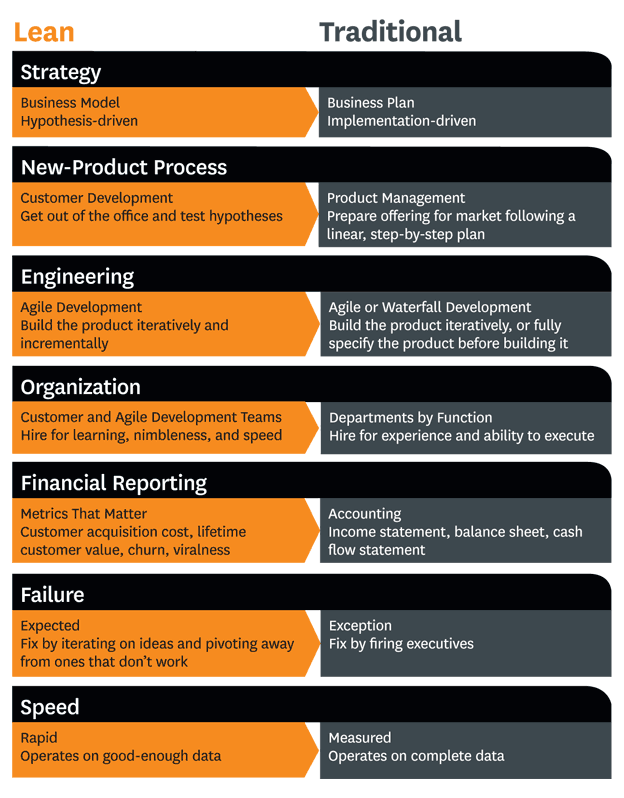Why ‘Lean Approach’ is the Future for Startups

‘Lean’ is the latest buzzword doing rounds on the startup circuit. Though this thought has been there for a decade, but it’s only recently that it has started becoming popular in the mainstream business. Most entrepreneurs are beginning to realize that adopting a lean approach can reduce risks and, thereby, the probability of failures. Fortunately, in my case, the better sense had prevailed even before I had sown the seed of my startup. Apart from deciding what product I wanted to sell and whether there existed a market for it, I spent countless hours on thinking how I wanted to build and grow my startup without suffering any major setbacks.
So, from day zero, I had started identifying the actionable that could enable me to build a lean startup. If you are about to embark or are already on your entrepreneurial journey, here is what you could do take the lean route.
Contents
Understanding ‘Lean’
Before you jump on the ‘lean’ bandwagon, you should first understand what exactly is a lean enterprise? Eric Ries, the creator of Lean Startup Methodology says that a lean startup isn’t about being cheap [but is about] being less wasteful and still doing things that are big.
Don’t be afraid to dream big, but chase it in a way that is efficient. It’s about making choices that balance your startup without losing the focus on the core goals. Do more with less.
Aim for Simplicity
I have often observed some entrepreneurs who develop a product that is complex for the customers to understand or use. Let’s say your product addresses the pain points of the customers, but isn’t very usable (or lacks the ease of use). They have to spend considerable time on understanding its features and functionality. By the time, they figure out how the product works, they are either frustrated or have lost the interest in it. Dear entrepreneur, if this is the case, you have a problem on your hand! Ask yourself, “Will I buy my product?”
Build one single product with critical features. Developing multiple products or too many features will take away the beauty of your idea and also create confusion within your team. It will be challenging to create a center of excellence or do further upgrades, based on the customer feedback.
You also need to drive away the complexity from your day to day operations. Basically, this means that you keep your startup de-cluttered at every step and take intelligent decisions that don’t waste resources.
Don’t overdo it. Excess isn’t always successful.
Invest in Learning – It’s a Natural Progression
I am yet to come across an entrepreneur who is a ‘Mr. Know It All’ or a ‘Mr. Perfect’. It is absolutely fine (and normal!) to falter or not to have knowledge about something. What matters is that you move on with newfound knowledge gained from these mistakes. Also, make it a conscious effort to widen the boundaries of your knowledge through reading, meeting or listening to mentors & peers or enrolling for a course.
Try to ingrain the philosophy of learning in the roots of your startup culture, it will definitely pay off in the long run. You and your team’s quest and thirst for learning should be a continuous process.
Capitalize on Your Human Capital
People are the most valuable asset in any organization, but many entrepreneurs fail to recognize or tap their potential. I believe that it’s difficult to find good people around. ‘Good’ does not equal to the best talent, it also refers to people who are willing to innovate, take challenges, learn & grow and have the right attitude.
A lean startup should be able to work independently of the entrepreneur without losing the focus on the vision, feeling demotivated or unsure about their career curve. I don’t claim that I know everything about managing people, but I can say that I have been able to build a team that drives my startup in the right direction. Here’s how I did it and you can do it as well.
- Understand the strengths and weaknesses of your people, this way you would know how to assign job responsibilities and draw the best of their skills.
- Give them the freedom to choose and express their opinions, it does tend to bring out the best in people.
- Don’t stop them to try new things and give wings to their innovative pursuits.
- Train them to multi-task in what they feel is right for their career path.
Learn to Say ‘No’
It’s always exciting to talk about your startup, product or anything or everything else that is important to you as an entrepreneur. It’s also very encouraging, when people approve or praise your idea. It’s even more tempting when they want to join hands with you. BUT….Is this partnership right for your startup? Does the new partner share your vision? Does he believe in your product as passionately as you do? If your answers are no, then you should not hesitate to say ‘no’.
I will take your leave with this very interesting comparison between a traditional and a lean startup for you to grab the essence of my views stated above.
Lean is the future. The faster you embrace it, the better it is.
About the Author: Amit Singal is Co-founder & CEO of Sainergie Consultants, an IT Products and Services company.
[Header Image: Shutterstock.com]

Lean is a method. Teams still need to manage tasks with some kind of project management. The only good tool for executing Lean Startup is Entroids.com
This is a link to an article that introduces the philosophy or principle of entroids
http://docs.entroids.com/EntroidsWay1/index.html
Thanks for the great write up. Really helpul.